


Handout developed by Public Profit that provides tips on how to look at program data, and use the data for program improvement.
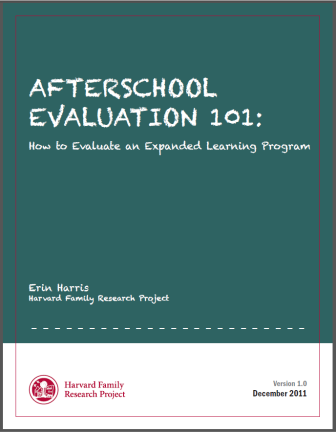
This toolkit, developed by the Harvard Family Research Project, is intended to help program directors and staff of afterschool, summer, and other out-of-school time (OST) programs develop an evaluation strategy
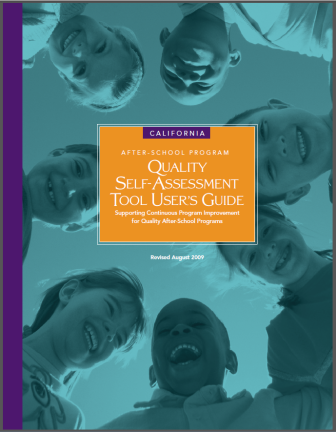
This is the user’s guide for the California After School Program Quality Self-Assessment (QSA) Tool which provides after school programs with a clear and concise way to start important conversations about program quality. The QSA Tool facilitates program improvement and support through a staff-directed process, rather than through external monitoring
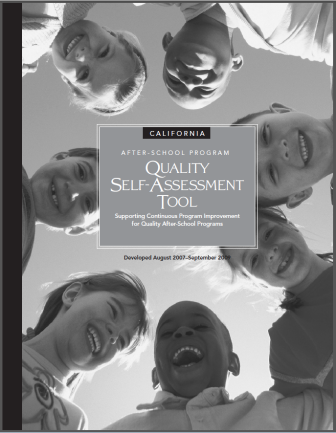
This is the California After School Program Quality Self-Assessment (QSA) Tool which provides after school programs with a clear and concise way to start important conversations about program quality. The QSA Tool facilitates program improvement and support through a staff-directed process, rather than through external monitoring.
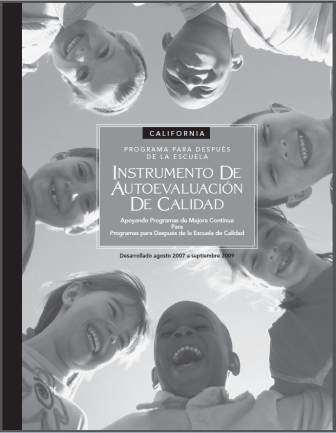
See description above.
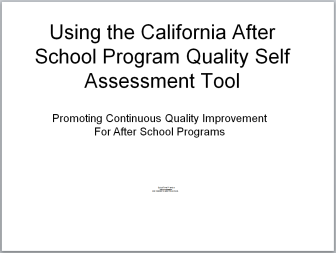 Assessment Tool Usage Powerpoint" width="336" height="253" />
Assessment Tool Usage Powerpoint" width="336" height="253" />
A Powerpoint to demonstrate how to use the California After School Program Quality Self Assessment Tool.
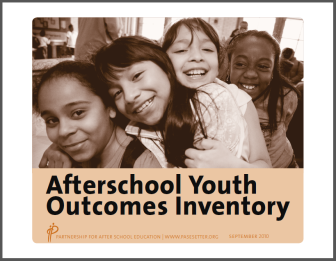
Developed by the Partnership for After School Education, this is a list of youth outcomes to help Out-of-School Time programs design activities.
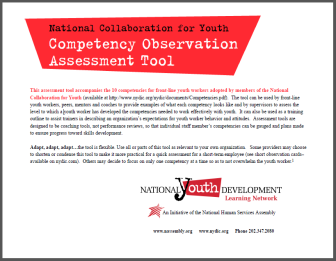
The National Collaboration for Youth developed this tool which identifies youth worker competencies. The tool can be used by front-line youth workers, peers, mentors and coaches to provide examples of what each competency looks like and by supervisors to assess the level to which a youth worker has developed the competencies needed to work effectively with youth.
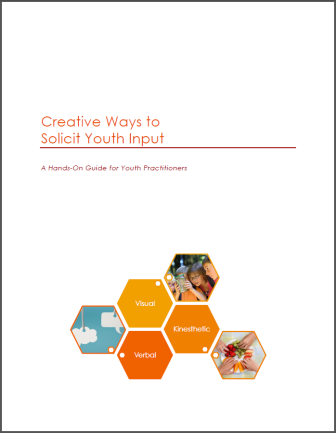 Solicit Youth Input - A Hands-On Guide for Youth Practitioners" width="336" height="433" />
Solicit Youth Input - A Hands-On Guide for Youth Practitioners" width="336" height="433" />
A guide that provides tools and activities for practitioners to gain youth input that moves beyond surveys, such as a “value walk.”
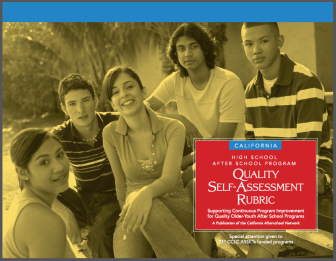
The QSAR Tool provides after school programs serving older youth with a clear and concise way to start important conversations about program quality. The QSAR Tool facilitates program quality improvement and support through a self-directed process, rather than through external monitoring. The QSAR Tool will help program staff and stakeholders assess their program and identify their challenges.
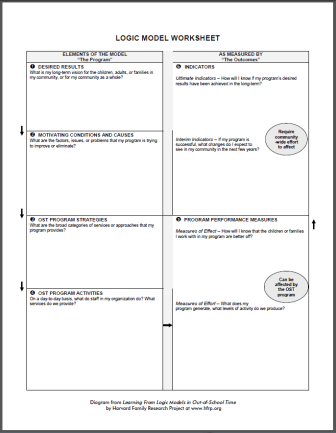
A logic model worksheet designed for Out-of-School Time programs by the Harvard Family Research Project (HFRP).
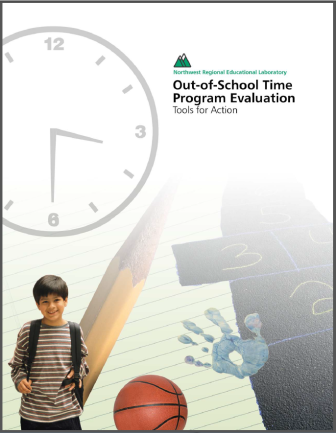 School Time Program Evaluation: Tools for Action" width="336" height="433" />
School Time Program Evaluation: Tools for Action" width="336" height="433" />
This resource manual helps programs assess their offerings by engaging stakeholders in surveys and focus groups. Each survey is presented with suggestions for administration as well as with information about what each can assess. Focus group questions are presented with suggestions for how best to organize and conduct the groups. Finally, this manual suggests methods of analyzing and displaying data to document accomplishments for present and future grantors as well as promote program to the community.
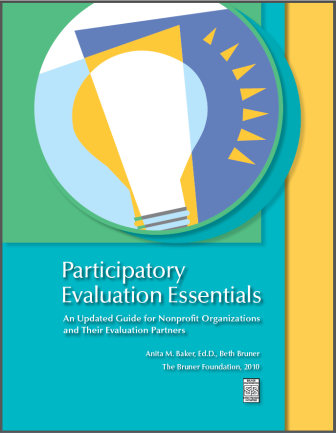
A comprehensive guide on how nonprofits can engage in self-assessment. The guide provides evaluation tools designed for use by program managers and CEOs to build skills that allow them to become active participants in the evaluation process—to build the capacity to conduct participatory evaluations and use the findings to make programmatic decisions; to become well-informed commissioners and consumers of evaluation; to use evaluative thinking beyond the program level.
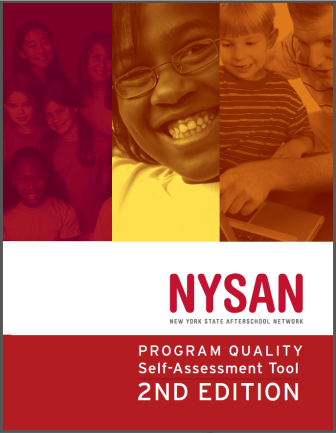
This tool, developed by the New York State Afterschool Network, provides a guide for self-assessing program quality by engaging key stakeholders.
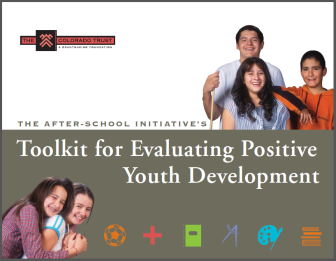
The After-School Initiative’s Toolkit for Evaluating Positive Youth Development contains a number of evaluation question sets that staff of an afterschool program may find useful to assess youth outcomes. It provides question sets to measure outcomes common to many after-school programs aimed at promoting positive youth development.
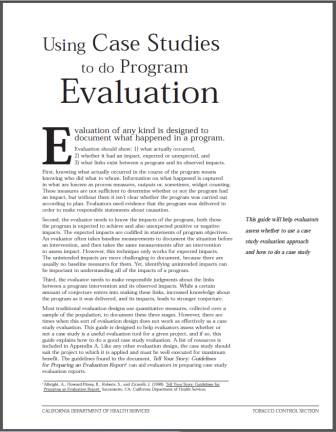
This guide is designed to help evaluators assess whether or not a case study is a useful evaluation tool for a given project, and if so, the guide explains how to do a good case study evaluation.